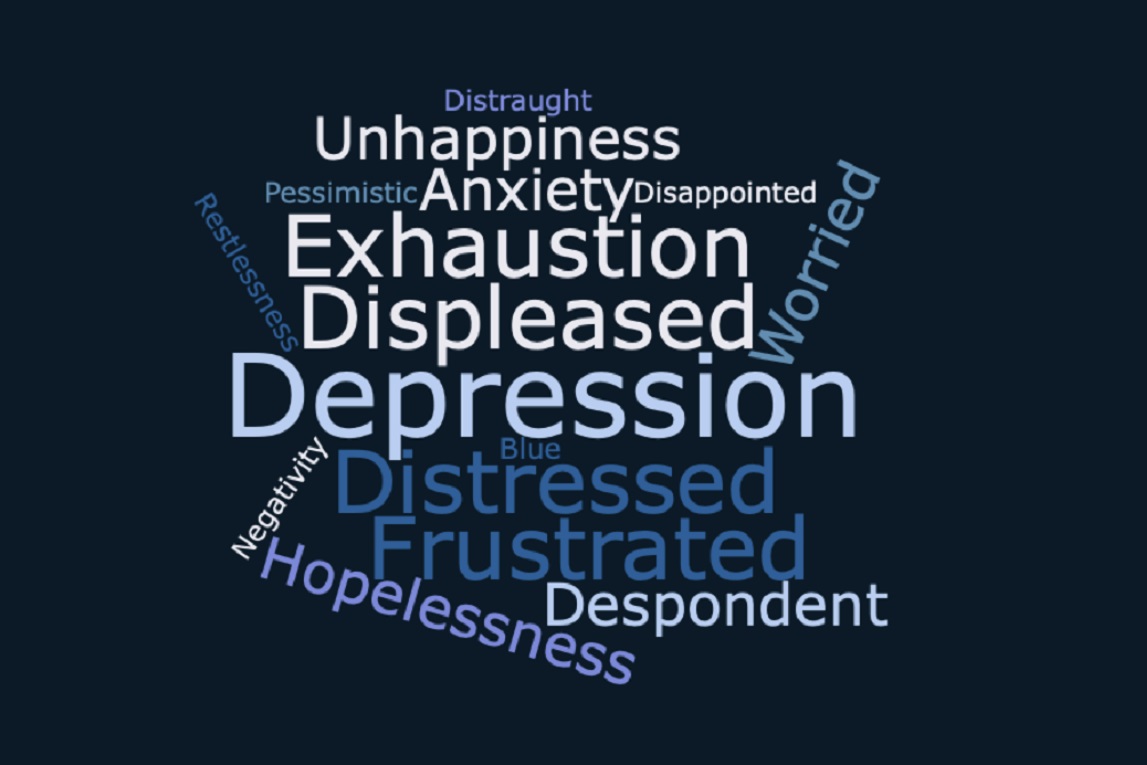Blue Monday is typically the 3rd Monday in January, so in 2019 that is January 21st. It is characterised as being the most depressing day of the year. Why? Well there are a number of reasons why ‘Blue Monday’ gets such a poor image; the gloomy weather, Christmas is long gone but the dent it caused in the bank balance isn’t and for some of us, we may start to fail our New Year’s resolutions.
With all this in mind it’s no wonder that Blue Monday has such a reputation, however it’s important to remember that some of us suffer all year round and the emotional wellbeing of your employees should always be a high priority.
An unhappy workplace is an unproductive workplace. In fact, in 2016/17, it was estimated that some 49% of working days were lost due to stress, anxiety or depression, with around half a million cases of these reported by UK workers.
But this doesn’t need to be the case. Here’s how you can create positive emotional wellbeing all-year round.
Creating an open door policy
Around one in four of us will experience difficulties with mental health. Conditions such as anxiety, depression, or a sudden physical illness or a bereavement can have significant impacts on employees both in and out of the workplace.
Given that we spend an average of 40 hours each week at work, it’s important that your employees feel that they can approach you or their peers if they are struggling, not just on Blue Monday, but throughout the entire year. The pressures of work can exacerbate anxiety or depression and lead to employees struggling to complete their work.
By opening the door to conversations around mental health in the workplace, you can create an environment where everyone has the support they are entitled to. This can be through anonymous emails or comments, or by giving anyone struggling a chance to express their concerns without fear of stigma.
Additional support within the office
Mental health awareness has come a long way in recent years, with many businesses appointing mental health first-aiders to give employees the chance to get support in the workplace when they feel the need to. However, there are other ways that you can support your staff on Blue Monday and all year round.
One of the easiest ways is signposting employees to support organisations such as the Samaritans or Mind. You could put up posters or noticeboard displays around the office to further raise the awareness of mental health difficulties.
There might also be a time when your employee seeks time off for counselling or therapy. It’s important to get an idea about how this will impact on their time in work so you can plan with them to create a solution where they will get the support they need, while still carrying out their duties.
Mental health affects everyone differently; some employees may just need you to know that they live with depression but are confident in their own coping techniques whereas others may need closer support.
Train your managers to spot the signs
Being open and speaking about mental health isn’t always easy. As a business owner, you’ll have the responsibility of protecting your employees’ emotional wellbeing – even if they do not feel comfortable telling you outright. This Blue Monday make the effort to ask your employees how they are feeling and continue to do this throughout the year.
By training your managers on the potential triggers in a workplace or how to spot the warning signs of a mental health crisis, you can put steps in place to support your team should there come a time when they approach you.
Training courses, like our mental health awareness course and mental health first aid courses, can give you an insight into how mental health impacts on your colleagues and how you can come together to help them manage their mental health on a daily basis.
Creating a safe environment for colleagues affected by mental health
Living with mental health affects people every day. But by getting at least an understanding of how being at work can impact on your colleagues is a vital first step. And we can help you take that step through our mental health awareness training courses. Take a look at our latest course calendar here.
Contact us for more information and start by asking your employees how they are truly feeling. Sometimes a listening ear is all we need to combat difficult times.

